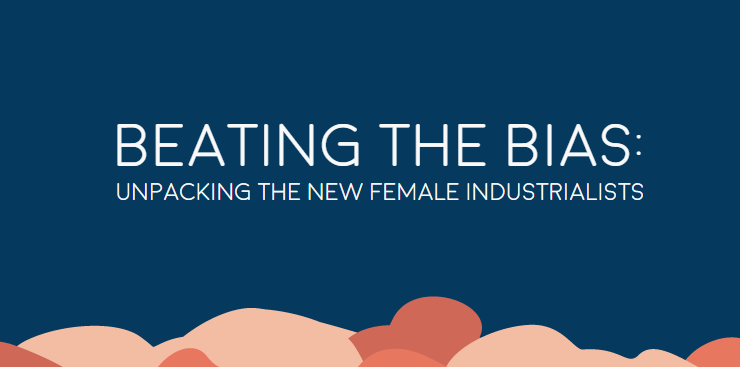Beating the Bias: Unpacking the New Female Industrialists
To celebrate women in business, leading packaging supplier Rajapack have looked at gender diversity in the workplace. Speaking to female industry experts from sectors that have been traditionally male-dominated, such as construction, manufacturing, logistics, supply chain, packaging and engineering, it’s clear that parity benefits everyone, on both an individual and corporate level.

Gender diverse companies perform 15% better, so we looked at how female representation in traditionally male-dominated sectors is progressing. Wanting to get first-hand insight into what it’s like to work in these fields, we spoke to a range of women who are leaders in their industry:
Construction & Manufacturing
Perhaps traditionally seen as the industries most unsuited to women, construction and manufacturing conjure up images of noisy building sites and factories, with lots of heavy lifting and heavy machinery, the kind you would find on https://stonex.com.au/collections/magswitch as one example. There are stories of the only women on a construction site being given a pink hard hat to wear. 51% of women working in the construction industry said they were treated worse because of their gender. But the construction industry is changing for the better, according to the women who work in it. Now they’re not only being stuck with the pink hard hats they are also being given proper equipment and hard wear, for example Waterproof Steel Toe Boots.
Emma Porter – Head of Operations, Story Contracting
As Emma’s father owned his own building company, she was exposed to the industry from a young age. Despite this, and having worked in the industry for over 10 years at the likes of Arup and Story, she reveals that she has had to prove her competency with every new team, stating that you will be talked over, patronised, and ignored sometimes: “I have felt like I’ve had to prove myself more and occasionally need to push a little harder to be heard”. However, she often brings a different perspective to the team, which is a huge advantage: “It’s easier to stand out if you’re different from the norm; clients, prospective employers and other stakeholders are likely to remember you.”
Packaging, Logistics & Supply chain
Packaging, Logistics and Supply Chain are all industries that have been traditionally male-dominated. However, there are female trailblazers. Rajapack, a French privately-owned company operating throughout Europe, was founded in 1954 by two women, Rachel Marcovici and Janine Rocher. Today, the company is run by Rachel’s daughter, Danièle. There is also Women in Packaging, a group dedicated to recognising and supporting female employees within the packaging industry. When it comes to improving logistical operations, professionals charged with doing this kind of thing may want to consider options such as those laid out in this article for inspiration – https://www.inform-software.de/news/news-details/news/die-hermle-ag-optimiert-ihre-werkstransporte-ohne-hohe-investitionskosten-in-der-cloud. There are plenty of practical solutions out there to make your manufacturing or machining center that bit more efficient.
Clair Ball – Head of Customer Services, Rajapack
With over a decade’s worth of experience in packaging, Clair believes that the sector has been a male-dominated field due to the industrial nature of the business. A lot of industries are like this, as they may all too often ask the question – is a Work Platform, or ladders, safe enough for women to handle when attempting to find things that may be out of arm’s length? The thought is there, but it can seriously affect a woman’s state of mind when it comes to completing the job at hand. However, since starting at Rajapack 14 years ago, she has seen more positions filled by women. “I have noticed a change in the industry towards being more customer focused, whilst also offering flexible hours and equal pay to benefit working parents”
Engineering
Engineering covers a vast spectrum of occupations, yet the amount of young women studying in this field has remained virtually unchanged since 2012. 25 years ago only about 20% of A-level physics students were female, and this number has not changed today.
Helen Wollaston – CEO, WISE
WISE is a campaign aimed at getting more women into the science, technology, and engineering workforce in the UK. Providing expert advice, WISE advises educational institutions and employers on how they can attract, retain and improve opportunities for girls and women in these subjects and industries. “Engineering has a male image, more so in the UK than other parts of the world. It has become something of a vicious circle – girls don’t see any female role models working in these industries, so they assume it is not for them.” Helen believes that we must challenge out-dated perceptions about the industry and so called “women’s jobs” and “men’s jobs”.
To view what other women have to say in order to obtain a more equal professional sectors head here.
